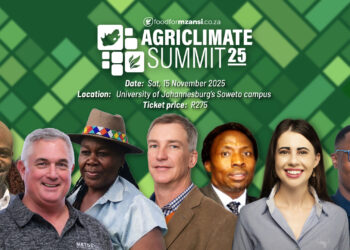The Competition Commission have raised concerns about the deepening economic strain on South African households, with a disproportionate burden falling on low-income communities.
In their report on the cost of living, the commission stated that with food and non-alcoholic beverages consuming over 40% of expenditure for the poorest households, the impact of food inflation is particularly acute.
Andiswa Sibhukwana, an economist from the commission, said South African households are barely coping as essential goods like food, fuel, and electricity have made it impossible to afford by low-income earners.
Prices of food staples troubling
“Food and energy insecurity has made matters worse because they have increased food security. Over 57% of monthly income is spent on transport and electricity, which little remains for food and other necessities,” she said.
Sibhukwana explained that while some staples like canned pilchards have shown signs of responsible pricing at the retail level, other essential food items, including eggs, IQF chicken, brown bread, sunflower oil, and white maize meal, exhibit troubling patterns of price stickiness and widening retail margins.
“In several cases, producer or input costs have fallen or stabilised, yet retail prices remain elevated, suggesting weak market responsiveness. Historically, maize meal producers have responded to upward movements in the maize price but have not been particularly responsive to reductions in the white maize price typical ‘rocket and feather’ behaviour.
“We will continue to monitor to see if producers respond to lower prices and provide relief to consumers because historically this has not been the case,” she said.
Related stories
- SA food prices spike, fuelled by meat and veggies
- Podcast: Brace for higher food prices
- The farmer’s guide to supplying fresh produce to markets
- Veld fire training highlights need for farmer preparedness
Meanwhile, on sunflower oil, Sibhukwana said historically, the oilseed producers have exploited market conditions. First in 2022 by pushing up prices in response to global oilseed increases from the Ukraine war, but local sunflower seed prices did not go up.
“Since the beginning of 2025, seed prices have exhibited considerable volatility, while producer prices have largely remained relatively stable.
“This dynamic has influenced the farm-to-producer price spread, which declined significantly in January and February. Although there was a modest recovery in March, the spread remained within a typical range and below the levels observed in 2024.”
Cost of living crisis
According to Sibhukwana, in May 2025, the farm-to-producer spread rose sharply, reaching a high of 27%. “This notable increase in margins is attributable to a continued decline in seed prices, which was not matched by equivalent reductions in producer prices.
“As this is largely due to volatility, it may not be immediately concerning, but if seed prices continue to fall and producer prices do not respond, then that would be concerning,” she said.
The report noted that the domestic poultry industry remains sensitive to global trade developments, including fluctuations in import volumes and the potential impact of tariff adjustments or temporary trade exemptions.
“In recent times, the poultry industry has benefited from, amongst others, increased availability, reduced import prices and lower input costs. The influx of lower-cost imports may be exerting pressure on producer prices, which have remained relatively stable for almost two years.
“The increase in prices at the producer level raises some concerns given that South Africa’s poultry industry is now recovering well following the avian flu outbreak in 2023 and 2024,” the report stated.
The Pietermaritzburg Economic Justice and Dignity Group said, based on their calculations, food was bought after monies for transport and electricity had been paid for or set aside (leaving R1 974.87 – for food and everything else).
“If the entire R1 974.87 all went to buy food, then for a family of four persons, it would provide R493.72 per person per month. This is below the food poverty line of R796 per person per month,” the organisation stated.
READ NEXT: Free State prepares farmers for planting season

















